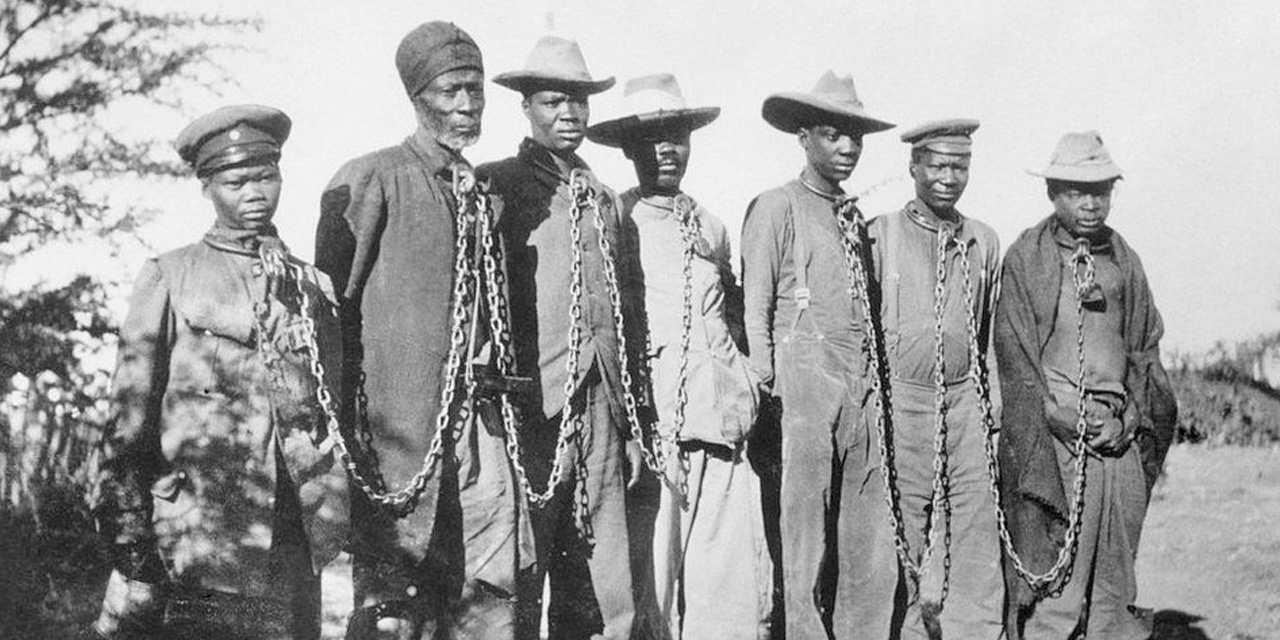Andrew Kathindi
Despite groundswell sentiments against the genocide agreement between Namibian and German government s, it is and is ikely to succeed when it is brought to Parliament.
“It is difficult to see it being rejected in Parliament unless Swapo members from the affected communities vote against it, which I don’t think is likely to happen as they would not wish to be seen as going rogue from the Party’s wishes,” says University of Namibia (Unam)’s Senior Lecturer and Political Analyst, Ndumba Kamwayah.
Kamwayah says the only way the motion could possibly be rejected in Parliament is if a secret ballot is permitted in “which Swapo members from the affected communities could be allowed to vote according to their conscience.
Former Swapo Party Member of Parliament and a descendant of the genocide victims Kazenambo Kaezeambo, borni in Botswana himself, , has stated he is aware that some fellow Swapo MPs from the affected communities being disposed towards wanting to vote different from the Party’s wishes. However they could properly only do so under a secret ballot.
The Unam lecturer further argues that besides the vote, the time would not be right for a debate in Parliament when there is still so much divergent and differing opinions among the affected communities. “There is still a lot to be done. To listen to the affected communities and reach a commonality.”
Germany’s government in May agreed to pay 1.2 billion Euros in the form of projects over 30 years for the “genocide”, which occurred between 1904-1908 during Germany’s occupation of Namibia, then known as German South West Africa.
Political Analyst, Henning Melber, agrees with Kamwayah’s stating that sentiments of the Members of Parliament from the affected communities is an indication that the “Agreement “ would be entered against the expressed will of those affected.
“As a result, reconciliation will remain a remote goal and wishful thinking. This underlines those bilateral negotiations between two governments, as legitimate as these are in legal terms and international relations, cannot replace the direct involvement of the people most affected.”
Melber further argues that the expected apology to be delivered by Germany’s President, Frank-Walter Steinmeier, in Namibia’s Parliament, is therefore also expected to only fuel continued hardened and principled positions than be eccepted. “The Agreement needs {to be } for ratification {to} be signed and thereby tuned into a legally committing document by the countries’ foreign ministers. The German Foreign Minister, Heiko Maas, would for this act be expected in Windhoek. But under the current circumstances, it seems very likely that his presence will be met with protest and demonstrations.”
“This will be embarrassing. Even worse, if the German President is then as part of the Agreement asking in the National Assembly for acceptance of an apology, parts of the August House might behave disrespectful.”
Melber further says that the apology should actually be offered to the descendants of those who were “killed” on the ground, and not to MPs who only to a limited degree represent them.
According to the German media, the Foreign Minister, Heiko Maas, confirmed in the German Parliament that he regards the negotiations as concluded, and the Agreement to be accepted as it stands, indicating that there is no in-built mechanism built to revisit the amount given.
Jürgen Zimmerer agrees with Melber’s sentiment, questioning whether an apology by the German President would be the right move. “Will there be an apology by the German President, if he faces fierce protest? What he needs to do now, is to reach out to the affected and discontent groups and apologise for the way the negotiations were conducted from the German side.”
“He needs to get their consent. In my opinion, the way forward, which would allow all parties to save face, would be for the German government to declare the government negotiations as concluded and to initiate direct talks with the affected communities, including those in the Diaspora. At the end we would have several agreements, and then the apology could be offered in a meaningful way.”




